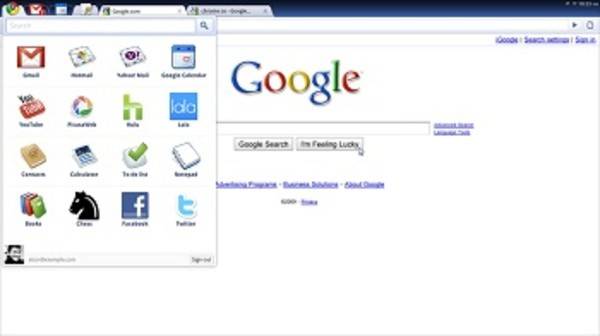Google has been on a killing spree the last few months, whacking projects that are non-essential to the company strategy or that haven’t caught on. Even though this has angered some users, Google is still stubbornly clinging to one of its biggest dogs to date: ChromeOS and the Chromebooks.

Google announced the ChromeOS in July 2009, and finally started shipping them to consumers in June of this year. (Not counting Cr-48s, which weren’t commercially available.)
While Google has been extremely successful with the Chrome browser, it seems home users and businesses are much less enthusiastic about an operating system based on the browser. According to a recent report in The Register Chromebook sales are “unlikely to exceed 30,000 units.”
To compare, Google claims 500,000 Android devices activatedevery day. Clearly, Chromebook sales leave a lot to be desired.
Why Chromebooks Didn’t Take Off
It’s not really hard to see why Chromebooks haven’t taken off. ChromeOS is a nifty operating system, but it’s just not competitive with Windows or Mac OS X, or really even with iOS or Android. Web applications only take you so far, and a device that always needs a connection is problematic.

The Chromebook didn’t even get reasonable VPN support until August of this year. Google is still struggling with proper offline support for its own suite of Web apps.
Chromebooks, for such limited hardware, started out very pricey. They’ve had a price drop recently, but I’m not sure it’s enough to make a limited piece of machinery all that appealing. At $300 for the Acer AC700 (after the price drop), you get a machine that’s tethered to Wi-Fi. Without it, you might as well be carrying a paperweight.
The Chromebook arguably makes a great secondary computer, but how many people actually need a second computer?
Why Google Hasn’t Canned Chromebooks, Yet
Given that Google’s been on a tear canceling unloved and non-strategic products, why hasn’t it put the axe to ChromeOS yet?
My guess is that Google sees ChromeOS as too strategic to throw in the towel. While the sales may not justify further development, Google sees ChromeOS as its ticket into enterprise accounts. The consumer market would be nice, but ChromeOS adoption in business would mean big wins for Google with Google Docs and Gmail.
Development costs for ChromeOS are probably fairly minimal, given that much of the development can apply to the Chrome browser as well as ChromeOS. The main question is whether Google can keep its hardware partners on board while Chromebook sales continue to flounder.
Can Google Recover?
Google jumped the gun with ChromeOS. They announced it too early, and they delivered late. The finished product is, by most accounts, underwhelming. Most of the Chromebook users I’ve talked to, and the reviews I’ve read, suggest strongly that ChromeOS has far too many limitations to appeal to widespread audience. This reminds me a lot of Linux desktop adoption. You only get one chance to make a first impression, and the first impression for ChromeOS seems to be “meh.”
The question is whether Google can recover from its lackluster ChromeOS introduction. It’s possible but seems unlikely. It’s rare for a product like ChromeOS to take off after such a slow start, and the competition from tablets (including Android tablets) seems a bit much for the company to overcome.
It’s not unheard of, though. Microsoft Windows didn’t take off until 3.0. Maybe Chromebooks will replicate Windows’ succees, though it does seem unlikely.
At this point, Google would be better off focusing its attention on Android. With some tweaking, Android could power the same devices as ChromeOS, with more native functionality. Someday we may be ready for a browser-based OS, but we’re not quite there yet.

















